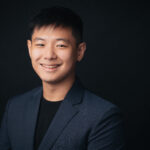Rayner Tan
Public Health

2022
|
|
Why did you choose to do a PhD?
After completing several research assistantships during and after my undergraduate years, I realized that I really enjoyed doing research. I wanted to do a PhD to specialize in this field. I also believe in the power of research as a way of advancing policy, especially in the field of health and medicine.
Why did you choose to do graduate education at NUS? If you received offers from other universities, why did you pick NUS?
NUS is a highly-ranked and globally-recognized university. I was also attracted to the offerings by the Saw Swee Hock School of Public Health – a leading institution in Singapore in the context of behavioral scientific health research.
How does graduate school compare to your undergraduate experience?
In graduate school there was a need to be more independent – I almost felt like an entrepreneur as I had the opportunity to find my own research grants, help manage manpower within a team, plan my own curriculum, and manage my own time to ensure that I meet the deliverable of the program in a timely manner. I definitely had more autonomy as a graduate student!
Briefly share about your research or thesis (i.e. dissertation topic for Masters by Coursework students).
As a sociologist, I have a keen interest on how social structures (tangle and intangible) impact health outcomes. Using a sociocultural lens, my thesis aimed to explore how varying factors impact sexual health-seeking behaviors among men who have sex with men in Singapore.
What impact do you hope to have with your research?
The research that I have done will help inform policies around the control and management of sexually transmitted infections in Singapore. I regularly participate in meetings with public health practitioners and clinicians to ensure that my research gets translated into practice and health services design/implementation. Occasionally, I get to write opinion editorials on important issues in this field as well as participate in policy meetings to help inform new policies in this health area.
Academic Activities
My thesis was nominated for the Wang Gungwu prize and was selected as a finalist. I have been selected as the principal candidate for the Fulbright Visiting Research Scholar program 2022-2023, and am set to complete an attachment at the University of North Carolina from February 2023. I was awarded a fellowship with the Asia Pacific AIDS and co-infections conference, the Social Innovation in Health Initiative (a WHO/TDR-funded initiative), and the Washington University in St. Louis HIV, Infectious Diseases and Global Health Implementation Research Institute. I have also previously be selected as part of Prestige Singapore’s 30 under 30 list in terms of my contributions to civil society and research. I haven’t specifically put in the effort to attain these prizes – however I believe constant work in an area that you are passionate about will help you connect with like-minded people in the field – some of whom will be your mentors and who would be happy to see you grow in the field.

